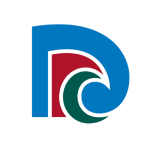Public meeting on regional oil spill preparedness
Northlanders are being invited to a public meeting in Whangarei later this month to hear what preparations the region has in place to deal with marine oil spills.
The Northland Regional Council is organising the 5.30pm Tuesday 29 November meeting in the wake of increased public interest in oil spills - and the threats to coastal areas - following the recent Rena container ship grounding off Tauranga.
The roughly-hour long meeting – which will include time for public questions – will see information on oil spill preparations provided by both the regional council’s Acting Chief Executive Officer, Tony Phipps, and the council’s Regional Harbourmaster, Jim Lyle.
Mr Phipps says Northland has long been considered one of the parts of New Zealand considered most at risk of a medium to large (50 tonne-plus) oil spill because it’s home to the Marsden Pt oil refinery and a large volume of commercial shipping also passes through its waters.
He says while an international disaster on the scale of the Rena would obviously need to be led by outside agencies like Maritime New Zealand, Northland is well-placed to handle smaller spills and boasts almost 60 trained oil spill responders, some of the best in New Zealand.
That expertise has been called on by those responding to the Rena and to some of the larger international oil spills in recent years, including the BP oil spill in the Gulf of Mexico and the Pacific Adventurer off Australia’s Sunshine Coast.
Mr Phipps says as well as a detailed and regularly-updated Regional Oil Spill Contingency Plan, Northland has also worked proactively over a number of years to implement protocols and safety measures designed to better protect the region’s environment from oil spills.
These included the Dynamic Under Keel Clearance System, which uses a network of special equipment at the entrance to Whangarei Harbour to detect whether it is safe for larger vessels to enter, especially during rough weather or difficult tidal conditions.
Mr Phipps says the council was also instrumental in ensuring the Poor Knights Islands had in 2004 become the first spot in the world to be formally protected by a ‘Mandatory Area to be Avoided’ international designation banning large ships from travelling too close to them.
From December 2004 all transiting ships more than 45-metres long have legally had to stay at least five nautical miles (9.26km) to the east (outside) of the Poor Knights Islands.
The regional council had been pushing for that designation – which applies to the area between Cape Brett and Bream Head - since a significant spill near the islands in 1999.
Mr Phipps says Northland is also home to a large stockpile of Maritime New Zealand oil spill recovery equipment – including a purpose-built $200,000-plus, 8.2-metre oil recovery vessel ‘Taranui’, based at Marsden Point.
The council maintains the equipment on behalf of MNZ and holds regular training exercises to make sure the right people and equipment can be put into action quickly.
It also has Memoranda of Understanding with the New Zealand Refining Company, Northport, NorthTugz and the Department of Conservation covering the joint use of resources, plant, equipment and staff to tackle oil spills as required.
Mr Phipps says he is hoping as many people as possible will attend the public meeting, which will be held at Whangarei’s Capitaine Bougainville Theatre, Forum North.
